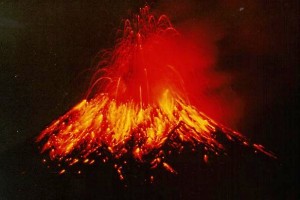Principal Investigator: AJ Faas
Student Researcher: Briza Diaz
Funding is being used to support anthropology undergraduate student, Briza Diaz, in an analysis of the minutes and resolutions (“actas”) of a small post-disaster resettlement, Pusuca, of smallholding agriculturalists in highland Ecuador. AJ Faas collected these data–155 pages handwritten by the village council secretary over four years (2008-2011)–as part of an ongoing study of recovery from the 2006 eruptions of Mt. Tungurahua. One core concern of the project is the development of two principal recovery strategies in the resettlement. The first involves working through local Andean practices of communal labor (known as “mingas”). The second is to promote individualistic, capitalist, “entrepreneurial” initiatives. The Andean people in this resettlement present their culture and practices like minga as moral, communitarian alternatives to capitalist greed. However, the resettlement agencies appear to change minga practice to meet their own objectives–altering the rules and conditions of participation, though it is not always obvious how and where they insert these new norms. Likewise, in spite of the communitarian ideals of the community, locals often enthusiastically volunteer for entrepreneurial economic programs offered by the resettlement agencies. Often, local peasant ambitions and desires are produced and invoked as if they were locally derived, while at the same time being co-created by dominant interests. This project seeks to trace the patterns of influence–internal community vs. external agencies–that have produced both new forms of Andean cooperation and entrepreneurial strategies.
